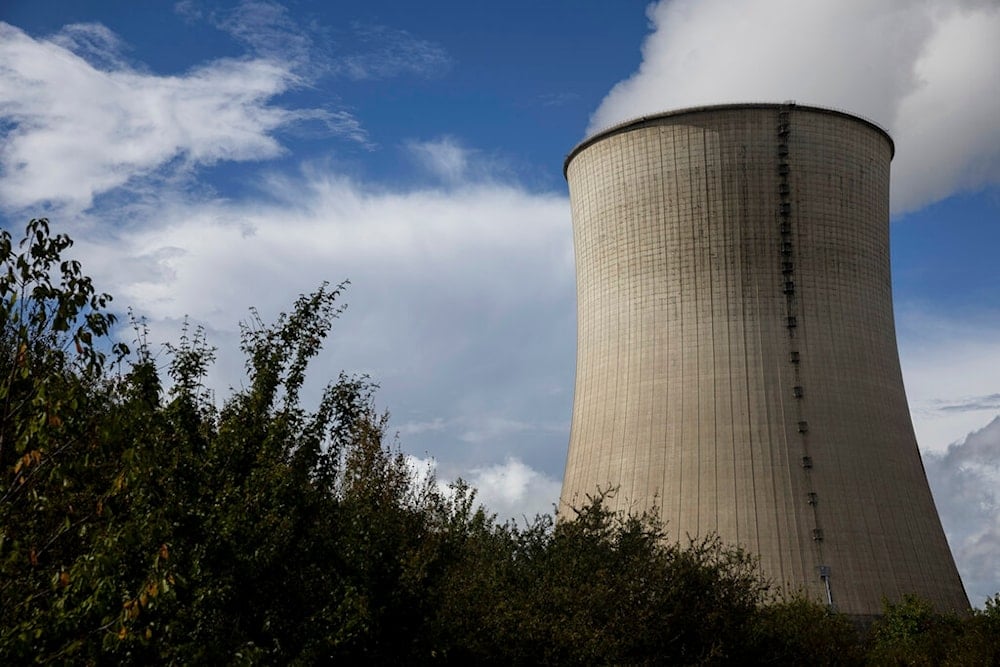Corrosion fears at French reactor drive up European power prices
On Tuesday, France's nuclear safety regulator (ASNR) confirmed that "hints" of corrosion had been found on pipes at Civaux 2.
-

The Cattenom Nuclear Power Plant in Cattenom, eastern France, Thursday, Sept. 8, 2022. (AP)
Bloomberg on Wednesday reported that power prices across Europe surged following concerns over possible corrosion issues at a key French nuclear reactor, raising alarms about renewed strains on the continent's energy supply.
Electricité de France SA (EDF), which operates the world's largest fleet of nuclear reactors, identified signs of "stress corrosion" at its Civaux 2 unit in central France. The news sent the French year-ahead electricity contract soaring by as much as 8.4%, the steepest daily increase in two years, according to data from the European Energy Exchange.
The reactor, offline since April for scheduled maintenance, may now remain out of service for longer than anticipated. La Tribune cited a source familiar with the matter saying the shutdown could be extended, though EDF has said the final results of its inspections are still pending.
On Tuesday, France's nuclear safety regulator (ASNR) confirmed that "hints" of corrosion had been found on pipes at Civaux 2. The update rattled regional electricity markets, with the August contract, when power demand for cooling typically peaks, climbing 13%. Prices also rose in Germany and the UK, countries that regularly rely on French electricity exports to meet domestic demand.
Nuclear strain
The episode recalls a wider crisis in 2022 and 2023, when EDF discovered similar corrosion across a dozen of its reactors, prompting rolling shutdowns and forcing France to temporarily lose up to half its nuclear capacity. That coincided with a sharp decline in Russian gas deliveries to Europe, creating an acute energy supply crunch and record-high electricity prices. EDF reported a record loss of €17.9 billion in 2022, driven largely by the cost of buying replacement power on the market and ongoing repair work.
Since then, EDF has undertaken an ambitious inspection and pipe replacement program across its aging reactor fleet. By early 2024, it had completed repairs on its most sensitive reactors, but work is expected to continue until the end of 2025. The situation is further complicated by broader structural challenges, including climate-related disruptions that have forced EDF to reduce output during periods of high river temperatures that affect reactor cooling.
Read more: Is the European Union heading for collapse?: Bloomberg
Although Europe has largely recovered from the height of the energy crisis, the Civaux development highlights how dependent the region remains on EDF's aging infrastructure. "Europe's power markets have largely emerged from the energy crisis of a few years ago, when Russian gas supplies all but stopped," Bloomberg noted. "Yet prices remain sensitive to any issues affecting the region's largest nuclear fleet, exposing the fragile nature of the recovery."
As of 9:57 am local time on Wednesday, French year-ahead electricity was trading at €67.50 per megawatt-hour, while the equivalent contract in Germany rose 2.92% to €89.40.

 3 Min Read
3 Min Read








